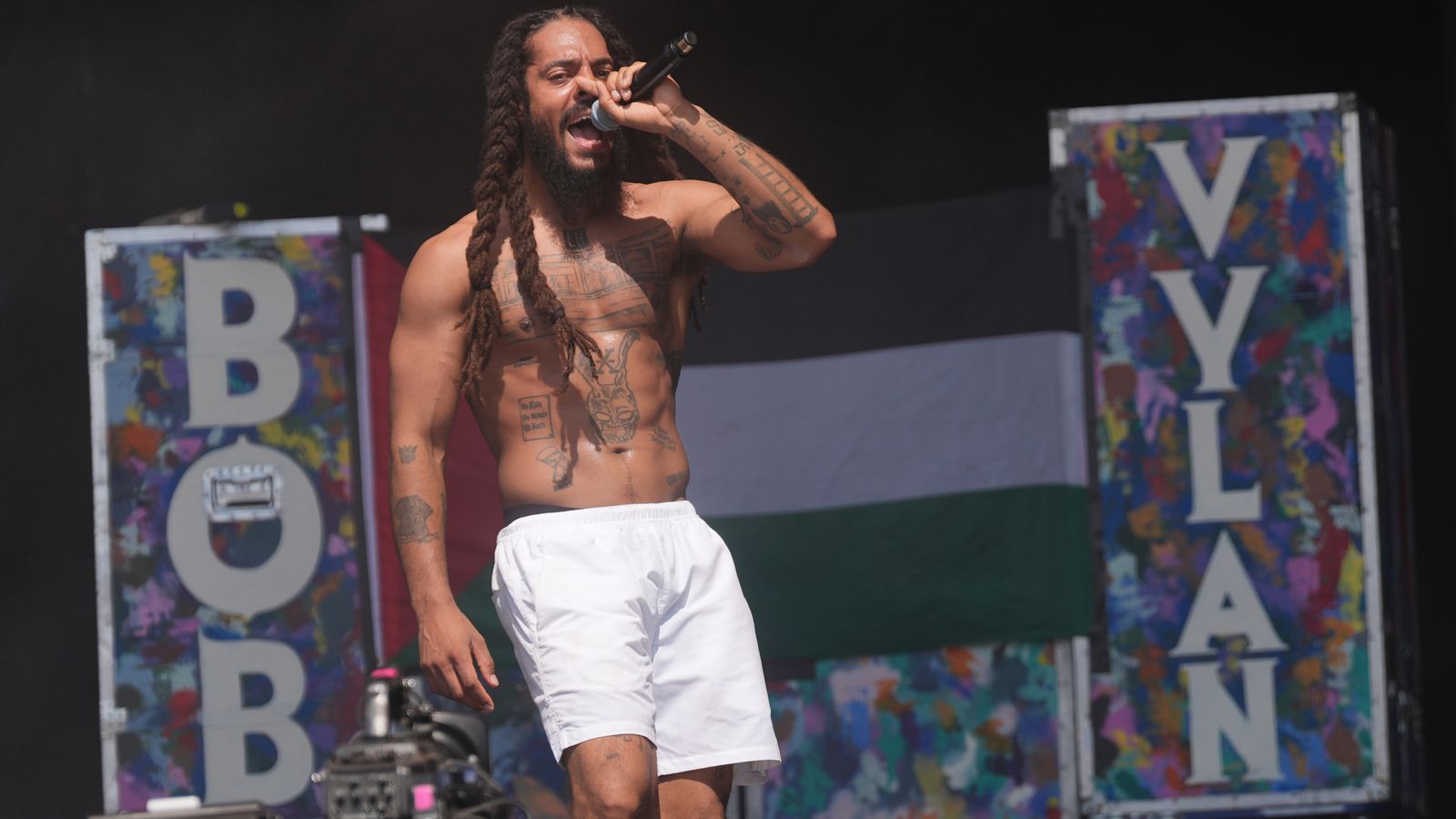
Bob Vylan’s Glastonbury Chants Spark National Controversy and Political Outrage
So, there’s been some serious heat coming out of Glastonbury this year—and not just from the weather. I want to talk about what went down during Bob Vylan’s performance on the West Holts Stage, because it’s making headlines everywhere and has stirred up a whole storm, from the BBC to Parliament and even the Israeli Embassy.
During their set, Bob Vylan, known for their punk-rap defiance, led the crowd in powerful and deeply controversial chants—most notably shouting “Free, free Palestine” followed by “Death, death to the IDF.” That moment was broadcast live on the BBC, which sent immediate shockwaves through the media, political circles, and beyond. The reaction was swift. The UK government publicly condemned the act, calling it threatening and offensive. Culture Secretary Lisa Nandy reached out directly to BBC Director General Tim Davie demanding answers about how this segment was aired and whether there was any due diligence carried out beforehand.
The BBC issued a statement soon after, saying that the language used was deeply offensive, and they had included an on-screen warning about strong and discriminatory language during the broadcast. However, they’ve now removed Bob Vylan’s performance from BBC iPlayer entirely—no replay, no on-demand version. It’s gone.
Also Read:- Carlos Pineda’s Ice-Cold Penalty Sends Honduras to Gold Cup Semifinals
- Mexico Set to Clash with Saudi Arabia in High-Stakes Gold Cup Quarterfinal
Meanwhile, Avon and Somerset Police have confirmed they’re reviewing video footage to see whether any criminal offences might have occurred. That includes both Bob Vylan and Kneecap’s sets—yes, Kneecap also came under fire, not only because of their politics but due to an ongoing terror-related charge against one of their members.
The Israeli Embassy didn’t hold back either, stating that they were “deeply disturbed” by Bob Vylan’s chant, calling it inflammatory and hateful. They argue it dangerously normalizes extremist rhetoric and violence, especially when echoed in front of thousands of people cheering it on.
But this situation raises deeper questions. Where is the line between protest and incitement? Artists like Bob Vylan and Kneecap see themselves as voices of resistance—speaking out for what they believe is justice for Palestine, colonial legacies, and state violence. To them, their stage is a platform for truth-telling. But to others, particularly the government and many viewers, the language used crossed a serious line, potentially promoting hatred and violence.
This whole thing throws Glastonbury’s ethos into sharp relief. The festival prides itself on being a space for freedom of expression and political voices, but now it’s caught in the crosshairs between radical speech and public responsibility. The festival organizers have also distanced themselves from the controversy, saying they “do not condone hate speech or incitement to violence.”
So, we’re left with this cultural collision—art, activism, and accountability all crashing into each other on a global stage. Whether you see Bob Vylan’s chant as justified protest or dangerous rhetoric, one thing’s for sure: this moment has forced a national conversation, and it won’t be fading away anytime soon.
Read More:



0 Comments